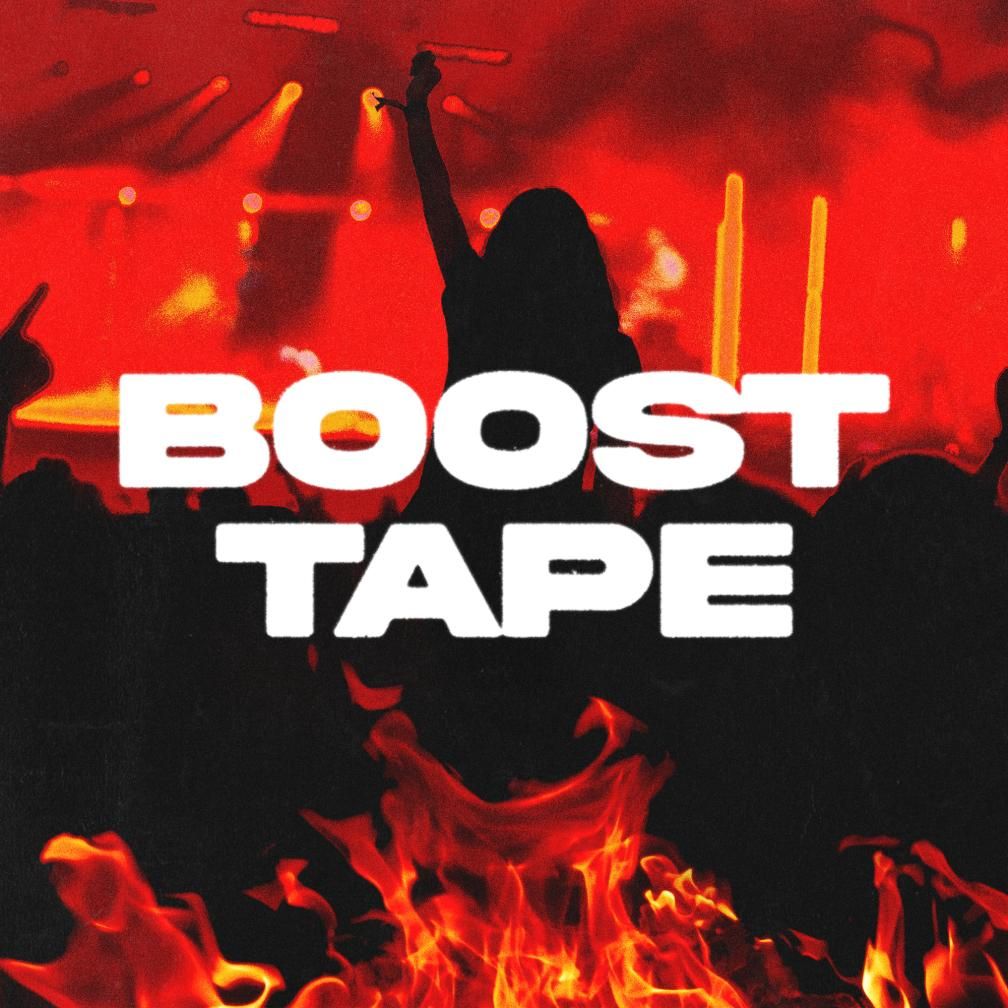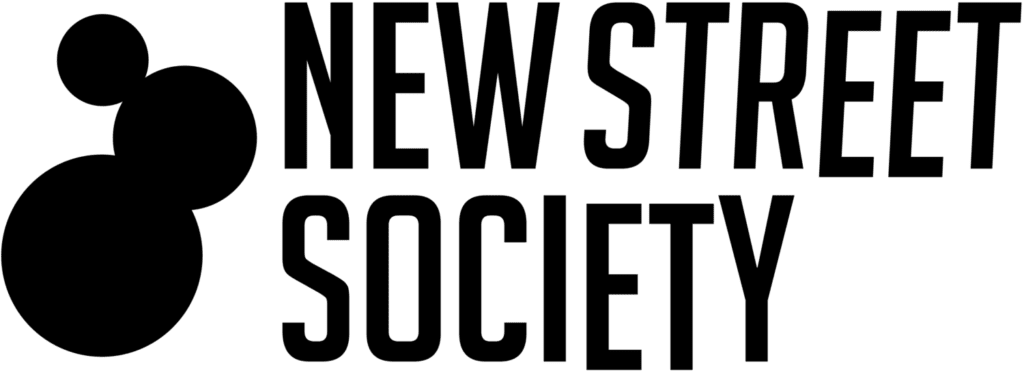Boost Gang Talk r/trap Origins, Social Good, Curation Approach + The Future [Interview]

If you’re a fan of electronic trap music, chances are you’re familiar with Boost Gang. If you are not, it’s due time to get familiar. The collective was born out of the iconic r/trap subreddit and has been responsible for some of the best compilation albums in electronic music for 3 years running. From legends like Baauer, Gladiator, Good Times Ahead, UZ, YehMe2, Salva, and Slumberjack, to FUXWITHIT favourites like Dabow, LYNY, Jon Casey, Floret Loret, So Sus, Acrillics, OAKK, Golden Child, Rome In Silver, and more, their curation is truly undefeated. Add on the fact that all of their releases benefit important social causes (m4bl.org, Musicares) and it’s hard not to want to champion the gang.
To get a deeper look into Boost Gang we connected with their team for a special interview. We talk about their origins, approach to curation, their goals as a platform, the state of trap, the importance of giving back, and more. Check out the full interview below.
Who is Boost Gang? How did you come together?
Lee: We are a bunch of community members and moderators from the r/trap Discord. We all got together around 2016 to move from IRC to discord and it’s been a great transition.
Staley: After writing the copy for Boost Tape 02, I was brought into the team by my buddy and expert curator Blastazoid. I knew most of the crew from various Discord servers, so it was a natural fit to work together.
Mace: The Boost team organically grew out of an online group of DJs and electronic music fans, from reddit and the r/trap community. Organizing on discord, we had been around for several years before the events of the 2020 BLM movement inspired us to use our platform and community to raise money for the cause. We came up with the name in May 2020 and started work on the first edition!
What’s your goal or mission as a platform?
Staley: Ultimately, we hope to uplift important causes like accessible healthcare for creatives and the continued fight of anti-racism work, while highlighting emerging talent in the dance scene that we’re most excited about.
Mace: We seek to use music to uplift communities and causes that need help, while celebrating the music we love and bringing together collections of artists that normally would not end up on the same release, therefore promoting more collective synergy in the music scene for good.
The first compilation came together very quickly, and we succeeded mainly because r/trap had a history of consistent and engaged artist interaction. – Mace
Your compilations have been some of the best in the space, perfectly pairing legends and up-and-comers. How do you approach curating each compilation?
Lee: We like to start out by making a list of potential artists both new and established, and reaching out to each one. For the first tape we definitely were trying to get all of the huge artists that we’d grown up loving in the Trap community.
Will: We definitely strive to strike that balance of our longtime favorite artists with newer talents – I still can’t believe that the legendary gLadiator’s final released song as a duo was on Boost Tape 01. And I want to shout out MadBliss and episcool, they’re the only ones with songs on all three compilations & they always come through with excellence, it’s been great witnessing their growth as artists in that time.
Mace: We are a large group, and our strength in diversity of taste around many disparate types of music (not just trap) lets us bounce ideas off each other and increase the range of each new compilation, as well as spreading the workload around the entire group. The first compilation came together very quickly, and we succeeded mainly because r/trap had a history of consistent and engaged artist interaction. Many of the artists from the first edition were mainstays in the community, or rising stars. The following compilations have expanded in range, by convincing the new artists to be involved by the strength of the first edition!
The releases have been primarily hosted on Bandcamp with some of the tracks being uploaded individually by the artists to other streaming platforms. Can you speak to what prompted this approach vs focusing on the typical streaming route?
Lee: I think the main goal was trying to take advantage of Bandcamp Friday’s and their waiving of the revenue shares on those days. We all are big fans of Bandcamp and it’s a great platform for independent and underground artists to thrive.
Mace: Bandcamp is the most down-to-earth platform for independent music releases, and has the most immediate turnaround for donations, as well as the least overhead, given that all our team worked on this as a volunteer opportunity. Their Bandcamp Friday promotion was another way to gain traction on their platform. This way we didn’t have to work out contracts and pay fees to distribute songs to DSPs, and could focus on quick turnaround. Of course we were completely supportive of all artists that wanted to upload their own songs, we didn’t take any rights to distribution beyond our Bandcamp release, but many of the artists were even more interested in an exclusive Bandcamp release for the song to drive engagement.
The genre definitely isn’t as big as it was in its heyday, but I’d argue there’s more creativity in the style than ever… – Will
How do you feel about the current state of trap music? Do you think there’s anything that can be done to improve it?
Lee: It’s hard to say how much is nostalgia but it does feel like trap as a genre has stagnated a bit, although there are definitely artists out there pushing the genre boundaries. It does seem like the EDM industry as a whole has almost hit an oversaturation point, but digging on SoundCloud still seems like the best way to find gems. As for fixing it, who knows. I’ve always thought the DMCA laws themselves needed a rework so artists can have a pathway towards actually profiting of fair-use remixes and the like. I also think platforms like Soundcloud could be implementing much more UX/UI updates and new features but who knows how much that would fix the actual state of trap itself.
Will: The genre definitely isn’t as big as it was in its heyday, but I’d argue there’s more creativity in the style than ever – it splintered off into a ton of different directions from where it started and the genre lines are blurry but that’s always been the case – genre pioneers such as Rustie and Baauer never really liked the “trap” label. It can sometimes be difficult to find, unfortunately, because like Lee said there’s a lot of saturation but it’s still really easy to find yourself going down a massive rabbit hole on Soundcloud discovering tons of underground beatmakers making the wildest music.
Where did the idea originate to make the Tape series a charitable effort?
Mace: As a community grown out of the dance music genre trap music (which is the intersection of hip-hop and electronic music) we are tied to the culture of hip-hop, which was grown out of black communities. When the 2020 BLM protests happened, we knew that we had a responsibility to acknowledge our place in this culture, and to do what we could to raise money and support for these causes. The larger idea of music supporting important causes continued to guide us even after we moved on to new charities.
By providing additional funding to this impactful organization, we hope to play a part in supporting affordable, comprehensive, and preventative health resources for everyone in the music industry. – Staley
What inspired you to work with MusicCares for the most recent edition?
Staley: The COVID-19 pandemic lockdown of 2020 significantly contributed to an already-growing mental health crisis. Most independent musicians in the United States are left with expensive and inaccessible options for health insurance, making mental healthcare difficult to obtain. In a time where so many people are struggling with medical bills and lack of treatment options, it makes it impossible to find the space to create the music that brings us all together. By providing additional funding to this impactful organization, we hope to play a part in supporting affordable, comprehensive, and preventative health resources for everyone in the music industry.
Mace: Although we were proud to work with M4BL, we also felt that we owed a kinship to the community of independent musicians who make up the scene that we love so much, and acknowledge the difficulties they have in a profession that exists outside of the corporate support structure that so many people take for granted, and we wanted to help raise money to support them with a charity as renowned as Musicares.
For sure, we all definitely like the idea of this being a charity compilation series, and we like to try and find a good organization or event to donate to each time.
Are there plans to work with different charitable organizations for future releases?
Lee: For sure, we all definitely like the idea of this being a charity compilation series, and we like to try and find a good organization or event to donate to each time.
Mace: We are completely open to new charity opportunities. In our chaotic world there are many moments that call for a popular uprising of support for emergency situations, it is important to be ready to move quickly to support causes that need immediate aid.
We want to explore options for new avenues of celebration of talent and support for the community, whether it be live shows, radio, tour promotion with established acts, and much more!
What’s next for Boost Gang?
Lee: We have a bunch of ideas in store for the next one!
Mace: We absolutely want to continue the series as it is for at least 2 more releases, one focused on new talent and then one that celebrates all the highlights of the previous releases! After that we want to explore options for new avenues of celebration of talent and support for the community, whether it be live shows, radio, tour promotion with established acts, and much more!
Is there anything else that fans should know about you?
Mace: I am proud of the entire team, and feel blessed to work with such exceptional minds and curators who have the same values and intentions.





